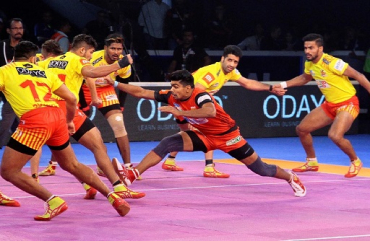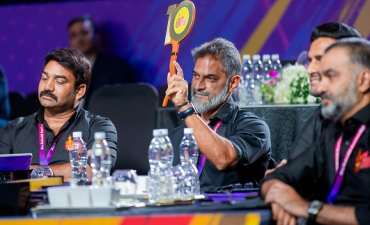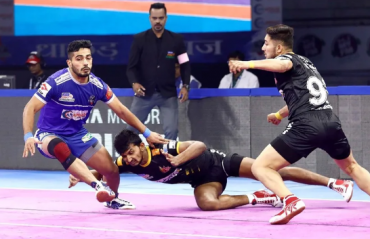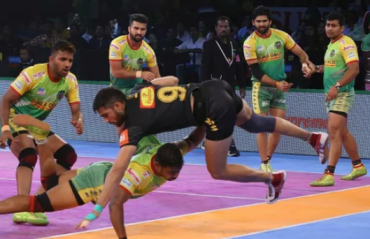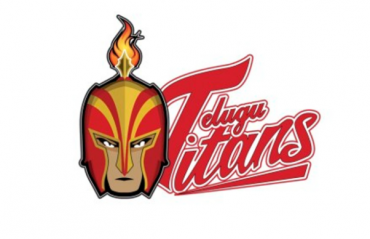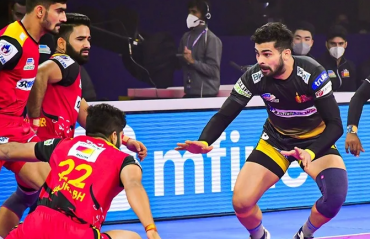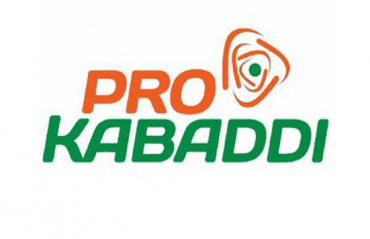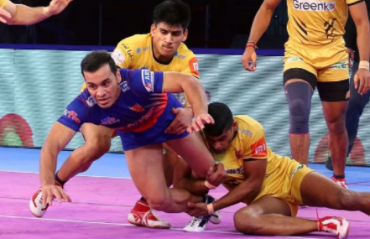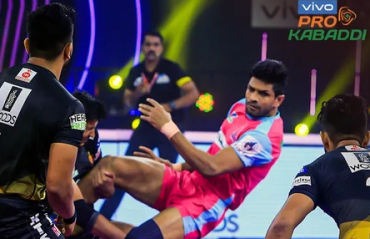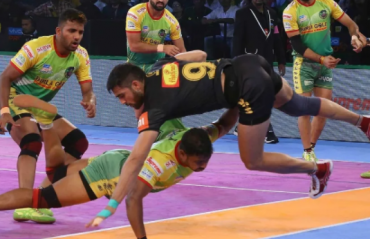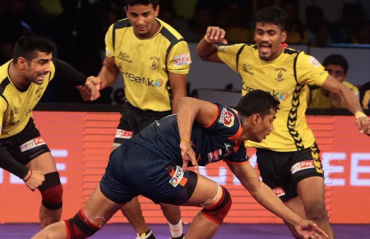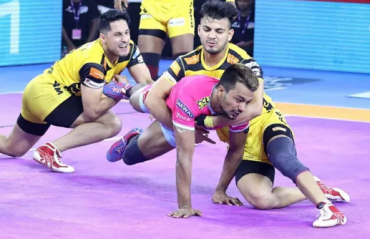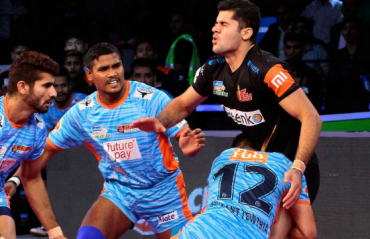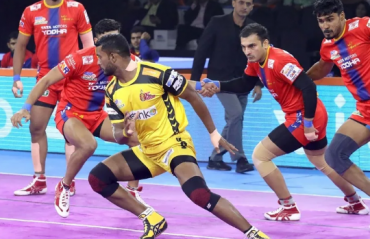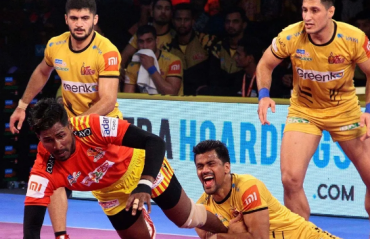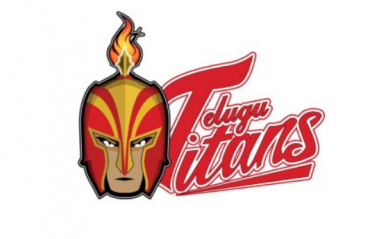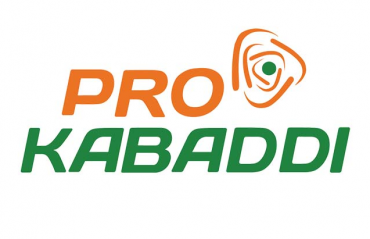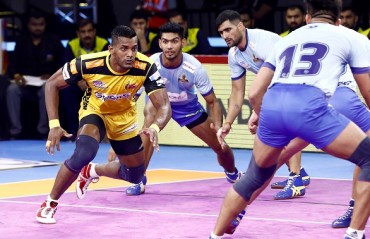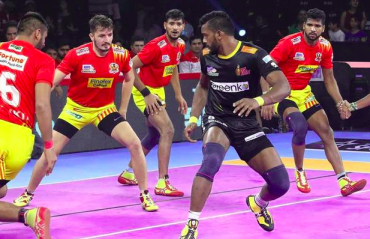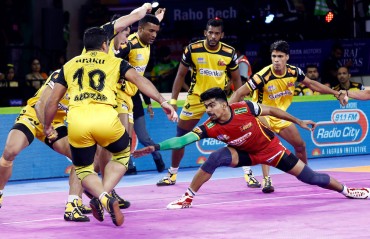The Curious Case of Telugu Titans: Srinivas Sreeramaneni on growing kabaddi, PKL, and beyond
- By Chiranjit Ojha

- June 15, 2016
IT TAKES A special kind of adventurism to look at a sport like kabaddi -- traditionally viewed as an unglamourous rural sport --and conceive it as a well-marketed, professional league sport. And to enter such a league with a team that seeks to unify in spirit a region embroiled in political turmoil takes that adventurism to yet another level. Which is why, when the gamble pays off, it changes not only the perception of the sport in India and aborad, but also shows how a sports franchise can go beyond its city-bound identity to appeal to a much larger populace.
The Pro Kabaddi League was launched by Mashal Sports and Star Sports along with some ambitious investors with the explicit intention of spreading national-style kabaddi to an extent that it eventually makes it into the Olympics. Srinivas Sreeramaneni, managing director of Core Green Group, was one of the enterpreneurs who believed in this idea from the get go.
Speaking to TFG in Hyderabad, he explained the rationale behind the Pro Kabaddi franchise he co-owns: Telugu Titans.
"Since kabaddi is a gladiatorial sport, we were all gung-ho that it would be successful. Because there's no other team sport that's as physical as this in India, and every Indian has played it... rest of the teams are city-based, but with Telugu Titans we wanted to cover both the states of Andhra Pradesh and Telangana: both the Telugu-speaking states. That's how the name came up. As for the jersey colour, yellow stood out from the rest. And I grew up watching the Lakers and Golden State Warriors in the NBA, so the colour is dear to me."
Although, the PKL, and the Telugu Titans, came up in 2014 when Telangana had not yet been officially carved out of Andhra Pradesh. But the movement demanding its formation had been at its peak for the last few years. But Sreeramaneni was confident that a team that assumed a unified Telugu identity would still appeal to fans even after the states split.
"It's a sport. It has nothing to do with politics. On the ground level, the relationship between the people of the two states remains very cordial. Everyone can get behind a Telugu team. So we played in Vizag and Hyderabad on alternate seasons and got great response from both cities."
Once the ball was set rolling, things somewhat fell into place for Telugu Titans, as was the case with all PKL teams. National-style kabaddi, featuring some of the best talent in the world, played on prime-time TV with great lighting and world-class production by the broadcaster (and now owner), was the kind of instant hit that all the new franchise leagues springing up in the country dream of. Sreeramaneni recounted:
"I don't think we marketed our team aggressively. The idea in the end was to put kabaddi in Olympics. So I spoke with some like-minded people like Satish Reddy and Mahesh Kolli... everybody was on board and Nise Gel from Reddy Labs became our first sponsor from outside, launching their product with us to support this initiative. None of us expected it to be this much of a success, and now that the viewership has gone up the sponsors are coming by themselves."
De to the concentrated nature of the traditional development of kabaddi, most of the players in PKL are from some particular parts of the country, and Telugu Tians have few local players in their team. But Sreeramaneni insisted that at this stage, this wasn't a problem.
"It doesn't worry me that most of the players are not from Andhra or Telangana. It's an Indian sport, so it doesn't matter which part of the country players come from. Look at it from an Indian perspective, not regional. And if the sport grows, a lot of local talent will develop as a by-product. Because until now kabaddi wasn't an aspirational sport for a lot of people. But now it's becoming one, with money and popularity. Telugu Titans happens to be the most watched team in the league. We're also the youngest and the highest scoring team and I think people love that."
And the lack of local players did not seem to bother the local fanbase either. Furthermore, having players from multiple regions helped Telugu Titans gain popularity in many states.
"It's not just Andhra and Telangana. Kerala supports us heavily, Tamil Nadu is behind us, and all of Uttar Pradesh supports us big time because of our captain Rahul Chaudhari, who is the poster boy of kabaddi."
Now that PKL has established itself as a popular sporting league in the country, with packed stands and TV ratings second only to IPL, Sreeramaneni said that the focus on grassroot development for the sport must go up, but in a concerted, meticulous manner,
"There are two teams in each zone of the country, and our responsibilities as franchises in developing the game goes beyond just the states we represent. But we have to do this very constructively or we risk the whole thing imploding. And these are also the early stages, we've just been around 2 years. So the Kabaddi Federation is working very well with Star and Mashal Sports, and we are letting them take the lead to spread this sport to the grassroot levels."
But although PKL has managed to capture the imagination of sport-loving Indians, the Titans co-owner believed that the league needed to evolve further. One of the things that needed further improvement, he said, was the format of the league. Having two seasons a year, though helpful in popularising the league, has triggered a lot of injury concerns from the players, and Sreeramaneni said he understood.
"For any sport to succeed on TV or as a league there should be a minimum duration of 90 days, that's the global standard. But currently we have only 8 teams, which is very short for that. So when we get to that 12-team size it'll automatically go to one 90-day season. For now, we are doing this twice a year keeping the marketing aspects in mind."
With the interest in the league and kabaddi as a whole rising rapidly with each season of PKL, increasing the number of teams and coming up with a longer season does seem to be the only way PKL can sustain its largely unforeseen but utterly significant growth rate. And they will need a team like Telugu Titans -- that can appeal to an audience wider than a city or state and sometimes beat IPL in local TV ratings -- to play a leading role in that effort.









